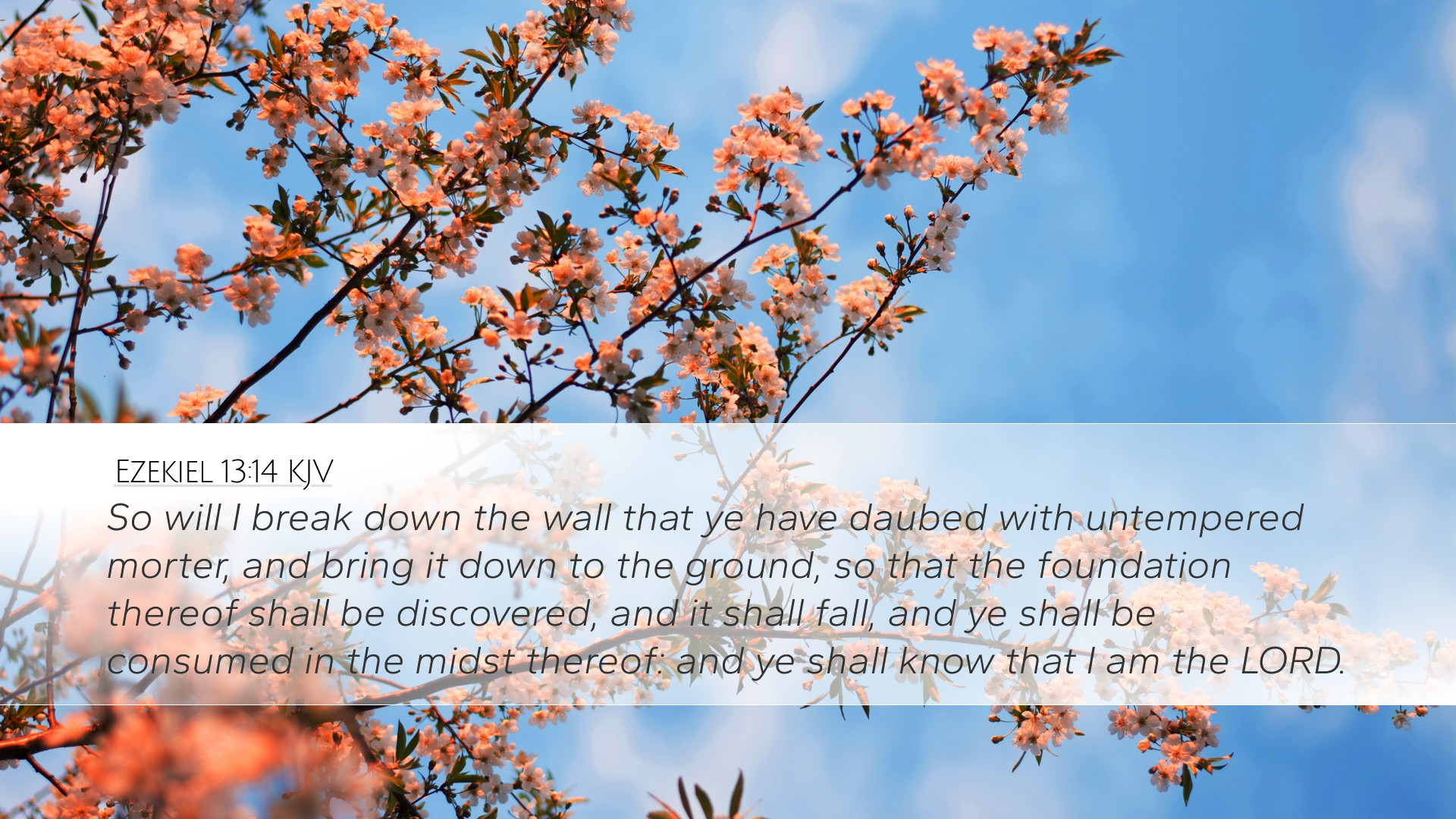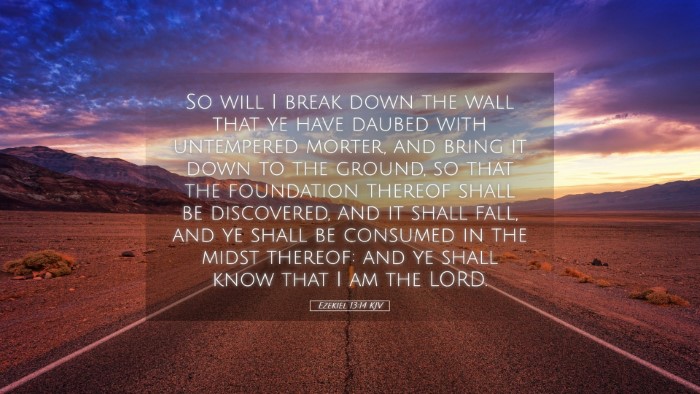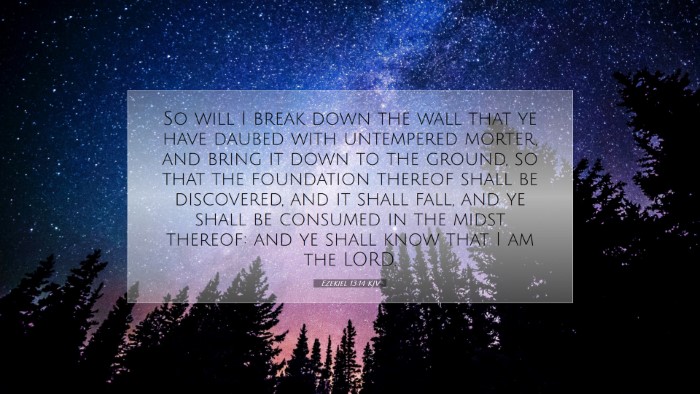Bible Commentary on Ezekiel 13:14
Ezekiel 13:14 states: "So will I break down the wall that ye have daubed with untempered mortar, and bring it down to the ground, so that the foundation thereof shall be discovered, and it shall fall, and ye shall be consumed in the midst thereof: and ye shall know that I am the LORD."
Introduction
The context of this verse is set within a larger prophetic message delivered by Ezekiel to the people of Israel. This portion of Scripture serves as a sharp critique of false prophets who have built their teachings upon weak and untrustworthy foundations. The imagery used, particularly that of a wall daubed with untempered mortar, conveys the fragility and danger of falsehood in spiritual matters.
Insights from Commentaries
Matthew Henry’s Commentary
Henry emphasizes the metaphor of the wall as representative of the false hopes and assurances offered by these prophets. He notes that the untempered mortar symbolizes the inadequacy of their teachings. His analysis highlights the following:
- Error of Assuring Peace: The false prophets were proclaiming peace when there was no peace, leading the people astray and thickening the wall of their delusions.
- Divine Judgment: God asserts that He will destroy this wall, illustrating that He will dismantle the false security established by these misleading assurances.
- Recognition of God’s Sovereignty: The ultimate purpose of this prophetic utterance is that the people 'shall know that I am the LORD', signifying that through judgment, God reveals His glory and sovereignty over human notions of security.
Albert Barnes' Notes
Barnes delves deeper into the implications of the untempered mortar. He argues that:
- False Foundations: The wall symbolizes the trust that the people placed in the false prophets and their messages, which lack strength and substance.
- Consequences of Deception: There is a dire consequence for those who build their faith on unreliable premises; the inevitable exposure of the foundation reveals the futility of their beliefs.
- Call to Repentance: Barnes suggests that this message serves as a call for true repentance, urging the people to return to the authentic teachings of God rather than relying on deception.
Adam Clarke’s Commentary
Clarke emphasizes the prophetic symbolism in Ezekiel's message. He notes the following key points:
- The Nature of the Wall: The wall represents the confidence that the people had in their own wisdom and the wisdom of the false prophets.
- Symbolism of the Mortar: The untempered mortar indicates a false security built upon human understanding, which is susceptible to divine judgment.
- God’s Intent: Clarke concludes that God breaks down these false teachings to reveal the truth, which is foundational to true faith and protection.
Theological Implications
The theological implications of Ezekiel 13:14 are profound, suggesting that God takes the integrity of His Word and teachings seriously. The Lord’s actions against the false prophets and their misleading assurances serve several purposes:
- Integrity of Divine Revelation: The necessity of a strong foundation in faith reflects the importance of adhering strictly to God’s revealed truth.
- Nature of True Prophecy: This verse indicates that prophecy should align with God’s will and character, contrasting sharply with human interpretations and desires.
- The Call to Holiness: In encouraging the people to recognize their reliance on shoddy spiritual structures, there emerges a call to a deeper commitment to holiness and truth in their spiritual lives.
Practical Application
For pastors, theologians, and students of the Bible, Ezekiel 13:14 offers a critical reflection on the nature of teachings within the church today. It underscores the need for vigilance against false teachings and the importance of a robust biblical foundation. Points of application may include:
- Discernment: Cultivating an ability to discern between sound doctrine and misleading interpretations reveals the necessity of studying and understanding Scripture deeply.
- Addressing Forged Foundations: Raising awareness within congregations regarding false teachings and encouraging a reliance on the eternal truths of God’s word.
- Building Community in Truth: Pastoral leaders should foster environments where truth is prioritized over personal or corporate agendas, ensuring that teachings remain rooted in scripture.
Conclusion
Ezekiel 13:14 acts as a sobering reminder of the absence of true security when founded on falsehood. Through its vivid metaphors and divine pronouncements, this passage invites reflection on the foundations of our faith. Ultimately, the promise that those who dismantle falsehoods shall recognize the Lord signifies not only judgment but also an opportunity for renewal and return to authentic faith.


